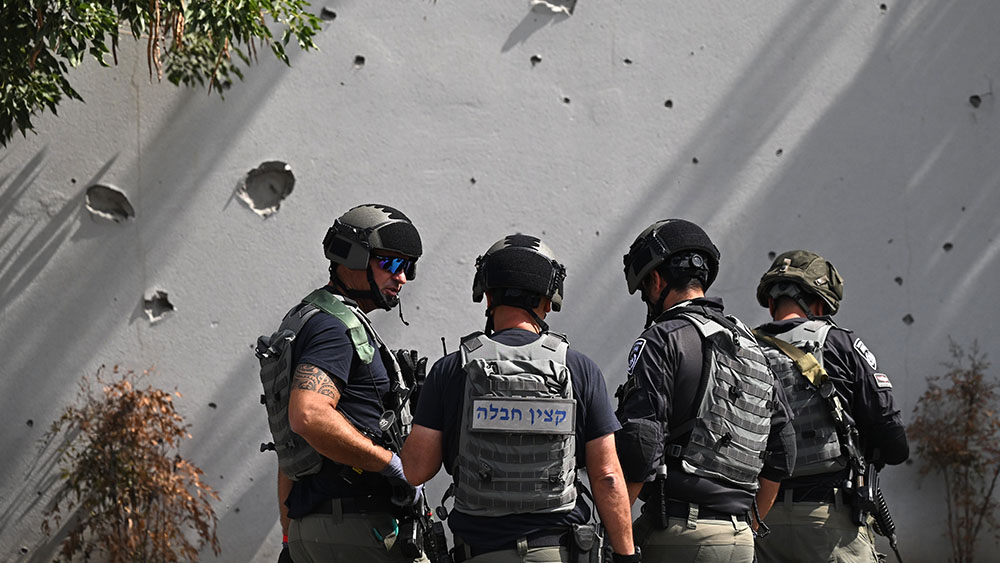
Four Israeli soldiers were killed and more than 60 were injured in a drone attack launched by Hezbollah targeting an army base close to the border with Lebanon, marking one of the bloodiest attacks on the Jewish state since the latest conflict with Hamas started just over a year ago.
The attack targeted an Army base near Binyamina. The four soldiers who were killed were all 19 years old and undergoing infantry training at the Golani brigade base, which is one of five infantry brigades of the Israeli army and considered one of its elite units. At least eight other soldiers have sustained serious injuries in the attack, and dozens remain hospitalized.
The drone struck inside of the dining hall where the soldiers were having dinner before leaving to carry out operations in Lebanon. Those in the dining hall were reportedly caught by surprise, and images on social media show the dining hall empty with a hole in the roof and blood on the floor.
Although there has been widespread media coverage of this attack, much of the reporting on it within Israel was limited at first, quite possibly under one of the military censorship orders that have been forcing journalists there to keep certain details of attacks quiet. Although reporting in Israel confirms that the strike occurred as well as the number of casualties, they did not initially mention that the Golani military base was targeted or that those who were injured were soldiers.
Israelis concerned about Hezbollah's long-range drone capabilities
The attack is heightening fears about Hezbollah’s long-range drone capabilities as a different attack two days earlier saw a pair of drones launched from Lebanon into Israel. Although Israel is known for having high-tech air defense systems, there were no alerts in Binyamina when the attack took place, leaving many to wonder how the drone managed to make its way so deep into Israeli territory without being noticed.
Hezbollah said that it sent a “swarm of drones” there, boasting: “These drones broke through the Israel defense radars without detection and reached its target at the training camp of the elite Golani Brigade in Binyamina.”
The drones used for the attack were reportedly Mirsad drones, which are known as suicide drones and most likely entered Israeli airspace from the sea. Running at a top speed of 370 kilometers per hour, they can carry as many as 40 kilograms of explosives and have a 120-kilometer assault range.
IDF spokesperson Rear Admiral Daniel Hagari said that the military will be investigating how the drone got through.
Hezbollah quickly claimed responsibility and said that the attack was a response to strikes Israel carried out in Lebanon last Thursday.
Their statement warned: “We will defend the land of Lebanon. This is only part of what will await the enemy if he continues to attack our people.”
The strike came on the same day that the U.S. announced it will be sending 100 soldiers and a new air defense system to Israel to help it protect itself against missile attacks. The Terminal High Altitude Area Defense (THAAD) battery and its associated crew will be deployed at an undisclosed date.
Israel has been intensifying its offensive against Hezbollah in Lebanon in recent weeks. Since last October, more than 2,100 people have been killed in Lebanon and more than 1.2 million have been displaced.
Sources for this article include:
Please contact us for more information.















